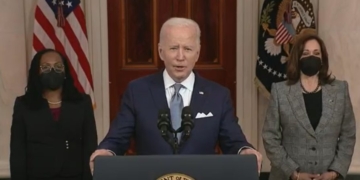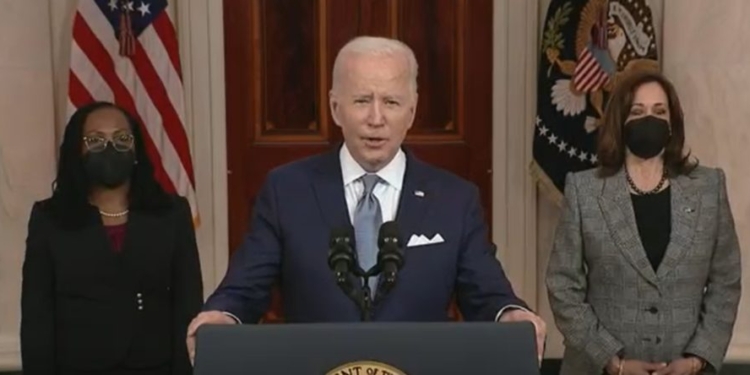President Joe Biden’s flagship industrial and climate initiative has struggled to get off the ground, as $84 billion worth of projects backed by the White House are paused or delayed, a Financial Times investigation found Monday.
Of the nearly $228 billion of manufacturing projects worth more than $100 million that are subsidized by the president’s Inflation Reduction Act (IRA) and Chips and Science Act, roughly 40% — totaling $84 billion — are paused or delayed, the outlet reported. The setbacks raise questions around the viability of Biden’s efforts to create a U.S. green energy manufacturing supply chain, as falling electric vehicle (EV) demand, persistent inflation, high interest rates and Chinese competition continue to dog domestic manufacturers, according to FT. (RELATED: Biden Admin Inks $12.6 Billion Deal With Blue State For Massive New Green Energy Hub)
“There will be attrition,” John Hensley, vice-president of markets and policy analysis at American Clean Power, told the FT. “Not every single one of these facilities is going to come online.”
Some 40% of biggest US manufacturing investments announced in 1st year of Biden’s signature overhaul of industrial & climate policy have been delayed or paused, per @FT. Of the projects worth >$100M, a total of $84B have been delayed or paused indefinitelyhttps://t.co/
uQ6IloeUZF — annmarie hordern (@annmarie) August 12, 2024
Slowing U.S. demand for EVs has contributed to the manufacturing freezes, with Korean auto parts maker Samkee delaying its electric vehicle lines in Alabama by one to two years, the FT reported. EV market share plummeted in the first quarter of 2024, with the average EV sales price falling 3.6% year-over-year to $44,186 in March as dealers looked to offload inventory.
A difficult macroeconomic backdrop has also contributed to the delays, according to the FT. Elevated interest rates have raised businesses’ cost of borrowing as the Fed continues to hold its federal funds rate target range between 5.25% and 5.5%, a 22-year high, since July 2023.
Adding to the strain for the fledgling projects is inflation, with prices up more than 20% since Biden became president in January 2021.
“Everybody’s running into higher-than-expected costs just because of labour and supply chain,” Craig MacFarland, mayor of Casa Grande, Arizona, told the FT.
Chinese competition has also caused problems for Biden’s flagship manufacturing initiative, as China’s superiority in establishing solar supply chains combined with its government’s heavy subsidization of raw polysilicon makes it difficult for U.S. companies to compete, even with tariffs and Biden-backed subsidies.
“Of course, we want to see these projects get up and moving as fast as possible,” Alex Jacquez, special assistant to the president for economic development and industrial strategy, told the FT. “We continue to work to clear barriers related to permitting, to financing, where they exist.”
The 2022 Inflation Reduction Act and Chips and Science Act provided more than $400 billion in tax credits, loans and grants to manufacturers, in an effort by the White House to spark domestic green energy technology and semiconductor production.
“This analysis cherry picks anecdotes to misrepresent the ongoing historic surge in manufacturing investment and factory construction. It has always been common for construction timelines to shift as projects advance,” White House spokesperson Robyn Patterson told the Daily Caller News Foundation in reference to the Financial Times report.
“Under this President, manufacturing investment has hit all-time highs for six consecutive quarters and we’ve added twenty thousand new construction jobs each month throughout 2024. It’s odd that this story makes no reference to officially released, comprehensive statistics demonstrating record construction of new manufacturing facilities.”
(Featured image credit: Screen Capture/CSPAN)
All content created by the Daily Caller News Foundation, an independent and nonpartisan newswire service, is available without charge to any legitimate news publisher that can provide a large audience. All republished articles must include our logo, our reporter’s byline and their DCNF affiliation. For any questions about our guidelines or partnering with us, please contact [email protected].



























 Continue with Google
Continue with Google